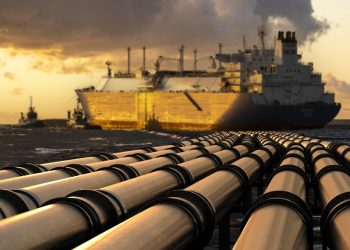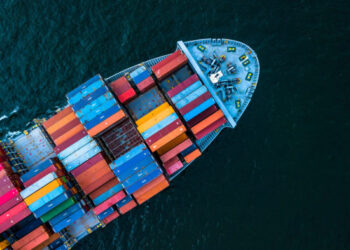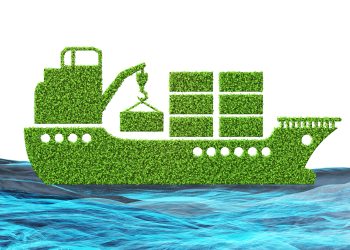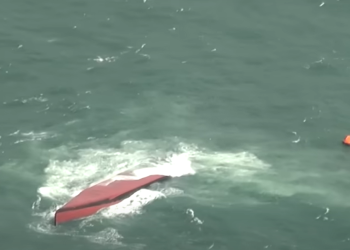Analysis by Poten & Partners

Average Laden Distances of the Major Crude Tanker Segments
(Image Credit: Poten & Partners)
According to Poten, tanker market pundits are continuously discussing the reasons for the strength of the market, especially since the world is experiencing only modest demand growth. What are the key drivers for the significant increases in rates? Some people point out that ton-mile demand has increased as a result of more long-haul crude oil movements, i.e. average distances have increased. These statements are generally based on anecdotal information, so Poten decided to take a closer look at the reported spot fixture activity in the main crude tanker segments to see if our data supports this statement.
Poten starts off with an important qualifier: the fixture data is good, but it only covers reported spot market fixtures, it does not track all worldwide vessel movements. Nevertheless, Poten thinks that reported spot fixtures can be a useful indicator of trends and changes in tradeflows.
The figure above, shows the development of average distances in each of the major crude tanker segments over the last five years. The data confirms that the VLCCs are employed on the long-haul voyages, while the Aframaxes do primarily shorter trips, with the Suezmaxes somewhere in between.
Starting with the VLCC segment data, we can see some interesting developments. At first glance, the average distances from 2009 to 2015 YTD do not support the notion of longer average distances. After a 618 mile (9%) increase from 2009 to 2012, average distances for VLCCs have actually decreased in recent years. The increase from 2009 to 2012 is clearly the result of two rapidly developing longhaul trades: from West Africa to the Far East (11,000 miles) and from the Caribbean to Asia (10,000 14,000 miles, depending on the destination). While a lot of these voyages are indicative of additional demand, some of the long-haul cargoes have been replacing shorter haul voyages from the Arabian Gulf.
It is difficult to explain the downward trend in average VLCC distances after 2012. The fixture data seems to indicate that while the West Africa to Asia trade keeps growing, there has been a reversal in the VLCC traffic from the Caribbean to Asia (in particular to India). Poten think that this is not a correct reflection of what is actually happening. Since many movements are done under long-term contracts, Poten believes that an increasing number of the cargoes from the Caribbean are moving outside off thereported spot market.
The development of average distances in the Suezmax segment also paint an interesting, albeit slightly confusing, picture of what is happening in that market. The average distance of the reported spot Suezmax voyages increased steadily from 2009 through 2013, a result of more long-haul fixtures originating in the Arabian Gulf and the Caribbean. However, this trend reversed in recent years. This can be partially attributed to the well documented decline in West Africa U.S.A. movements as a result of the domestic tight oil boom. However, other factors have played a role as well. When comparing the first five months of 2015 with the same period of 2014, it shows a marked increase in shorter haul voyages from the AG to India. At the same time there was a reduction in longer haul trips to the UK/Continent and the U.S. West Coast. Intra-regional Suezmax movements in the Caribbean also increased this year.
It will come as no surprise that the Aframax tankers are employed on the trades with the shortest average distance. These trades are also fairly stable and the distances in this segment fluctuate less than in those for the larger vessels. When comparing 2009 with 2014/15, the main change is the significant drop in intra-Mediterranean voyages as a result of the Arab Spring. While this had a significant impact on Aframax tanker movements in the Mediterranean, in particular the ones originating from Libya, it did not have a material impact on the average distances for this segment.
In summary, the data from the average distance analysis is not conclusive and in some cases (Suezmax) the trend appears to contradict the argument that an increase in average laden voyage length is a leading explanation for the high freight rates in the tanker market. Other factors, including floating storage, port congestion and limited fleet growth, just to name a few, are important factors as well.
Source: Poten



























































